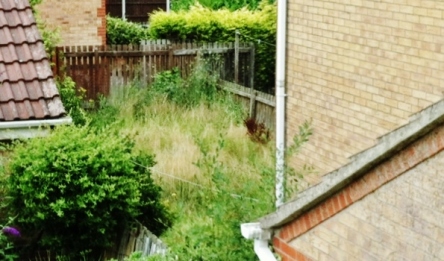“Love thy neighbour”. Originally a commandment. Today, a phrase used by few. Why you ask. Because the idea of forming a friendship with your next door resident, creating an unrivalled bond with care and affection, has been blown out of the window completely. New figures suggest that a huge 60 percent of British people don’t get on with their neighbours and 28 percent wouldn’t wish to socialise with them, according to a survey carried out by insurance group Swinton.
Reasons why people have a dislike toward the people or person living next door include blocking driveways, overflowing bins, barking dogs, partying all night and simply because they can’t be bothered to speak to them. It is evident in communities right around the country. Neighbours are no longer someone you can give the keys to whilst you go on holiday. Oh no, nowadays neighbours are more of an enemy. Or at least someone who you acknowledge has an existence.
For me, I see all different types of neighbours. On my right, I have a retired elderly couple who are brilliant neighbours. The best neighbours you could ask for. Always lively, always chatting and genuinely nice to talk to. Across the road are neighbours who don’t really make an effort and god knows who lives in the houses beyond. You could say it’s rather sad. My grandparents always tell me about their “amazing” neighbours. They often recall their days of youth and how everyone would leave their front doors open and everybody would bond. Today, I wouldn’t dream of leaving my door open. It just seems wrong in every term of social etiquette.
I have a genuine bond with my right-hand neighbours. Even a few weeks ago, I knocked on their door at 10:30 at night to tell them they’d left the car windows open. They were, quite frankly, overwhelmingly grateful. And I know they would do the same back. My neighbour on the left is in a world of his own. He’s not really an enemy or a bad neighbour, but his conduct certainly needs questioning. The photo below explains all.
There is nothing worse than a poorly maintained house and a garden that belongs in a skip. The man next door (I don’t know his name) is probably rather pleasant. I’ve said hello to him in the one in six month appearance he makes. I wouldn’t describe him as a “hateful neighbour”, but living in a community should mean you adhere to certain conventions. Keeping a tidy garden is a must. Waking up to see a dismal display of horticulture really is most depressing. No aspiration and lack of care says a lot about an individual’s lifestyle and their approach to the community and neighbours.
Type in “neighbour complaints” into a search engine and there appears pages and pages of advice as to how you should approach neighbours who annoy you. Talking to them, calling the police and legal action are all suggested solutions. I would never take action against what is a disgraceful garden, but surely the resident in question must feel some embarrassment and shame towards what he displays and how other people see it. It does become an annoyance and a talking point. The lack of attention and affection is not just evident in the garden. It’s evident throughout all of society with more neighbour disputes than ever before. Is there any need for it?
I honestly believe there is a need for good neighbours. They can be motivating, aspiring and quite helpful. The change in social issues such as education, wealth and religion have all led to inevitable, often unnecessary, conflicts about the most minor problems. It really is no surprise that we hear stories of neighbours at “war” with one another and how many people don’t even know their neighbours. It is a sad to see dilapidating communities and neighbourhoods. A million miles away from the thriving hubs they once were.
